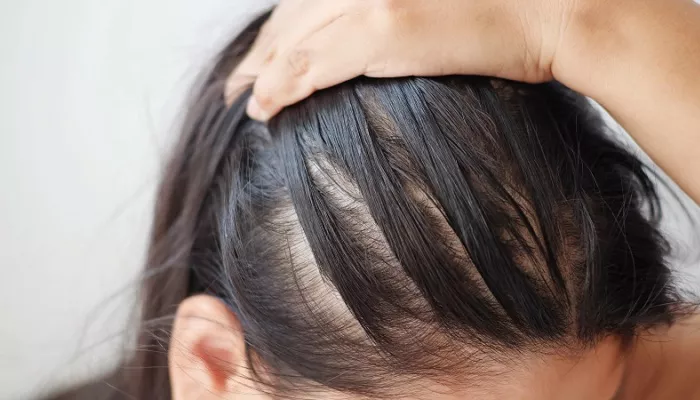Hair loss affects both men and women, arising from factors such as genetics, age, hormonal imbalances, stress, medication, and hair care routines. Whether gradual thinning or sudden shedding, the experience can feel discouraging. However, many types of hair loss are reversible with the right approach.
Beauty and wellness influencer Gracie, known as @thegraciecollins on TikTok, shared her personal success story of regrowing hair after severe thinning by following a consistent hair health regimen.
Gracie credits her progress to using a Derma Roller and Derma Stamp on her scalp two to three times weekly, stimulating hair growth through increased blood circulation. Alongside this, she takes Viviscal—a daily supplement rich in vitamins supporting hair growth—and pumpkin seed supplements to inhibit DHT, a hormone linked to hair loss.
Central to her routine is minoxidil, a widely recommended topical treatment for hereditary pattern hair loss, the most common type affecting women. Endorsed by dermatologists and trichologists, minoxidil is also recognized by the NHS as a proven treatment for female-pattern baldness.
Experts at Boots explain that while the exact mechanism remains unclear, minoxidil likely boosts blood supply to hair follicles, slowing or halting balding and promoting thicker hair growth. They emphasize that although hair loss is more common in men—affecting about half of all men by age 50—women can also benefit from minoxidil treatments designed specifically for them.
However, consistency is crucial. Stopping minoxidil use typically results in the loss of newly grown hair within three to four months. Gracie stresses the importance of daily application, especially for those facing severe thinning. “You have to be religious about it,” she says, comparing the commitment to maintaining physical fitness.
Before starting any treatment, consulting a healthcare professional is essential. They can provide personalized advice on supplements, medications, and hair growth tools. Boots recommends speaking to a GP or pharmacist before using minoxidil to ensure suitability.
Minoxidil may not be appropriate for everyone, particularly pregnant women, individuals with high blood pressure, psoriasis, or those taking certain medications such as tretinoin or corticosteroids. Checking for potential interactions with current medications is also vital.
By combining expert advice with disciplined hair health tips, many individuals like Gracie have found hope and success in reversing hair thinning and improving their hair health.
Related Topics:
- Jenn Tran Shares Hair Health Journey and PRP Injection Experience
- Best Hair Growth Solutions for Women, According to Hair Loss Experts
- 8 Daily Habits That Secretly Damage Your Skin and Hair


